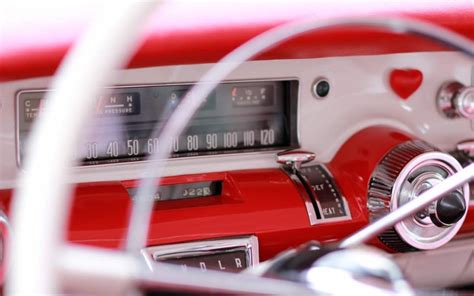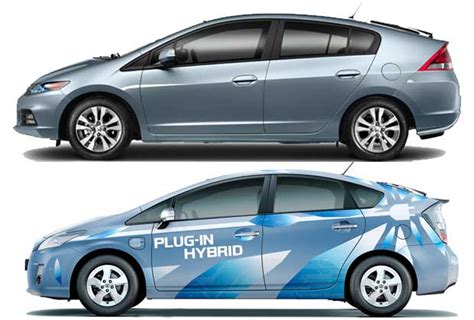It’s a question that has long plagued car owners: how many miles can you put on a car before it dies? Unfortunately, there is no definitive answer to this question, as it depends on a variety of factors. The age and condition of the vehicle, the type of car, the quality of maintenance you provide, and the type of driving you do all play a role in determining how far you can drive a car before it dies.
Generally speaking, cars that are well-maintained can last for upward of 200,000 miles. On the other hand, cars that are poorly maintained and driven hard may only last for 100,000 miles or less. It’s important to remember that the more you drive a car, the more wear and tear it will experience. If a car is neglected or driven in a more aggressive manner, it can reach the end of its life sooner than a car that is properly maintained and driven in a more conservative manner.
The type of car you drive also plays a role in how many miles it will last. Generally speaking, luxury cars are built to last longer than their budget and mid-range counterparts. This is due to their higher quality components and build materials as well as their superior engineering. On the other hand, budget and mid-range cars are typically built with lower quality materials and parts, and they may not last as long.
If you want your car to last as long as possible, it’s important to keep up with regular maintenance. This means changing the oil and filters regularly, checking the brakes and other components, and replacing any worn out parts. It’s also important to avoid driving aggressively or carelessly. Taking your car on long drives, making sudden stops, and accelerating quickly can all put extra strain on your car and reduce its lifespan.
In short, how many miles you can put on a car before it dies depends on a variety of factors, including the age and condition of the car, the type of car, and the quality of maintenance you provide. Luxury cars may last longer than basic models, and cars that are well-maintained and driven in a conservative manner can last for upwards of 200,000 miles. Ultimately, it’s important to keep up with regular maintenance to ensure your car lasts as long as possible.
How Many Miles Can A Car Last Before It Dies?
A car can last anywhere from a few thousand miles to over a million miles, depending on its make and model, the quality of care it receives, driving conditions, and other factors. The average lifespan of a car is around 200,000 miles, but some cars have been known to last much longer. For example, a Toyota Camry has been known to last up to 600,000 miles, while a Honda Accord can last up to 800,000 miles.
The age of the car should be taken into consideration when considering how many miles a car can last before it dies. Older cars tend to last fewer miles than newer cars, as they have not been designed to withstand the rigors of today’s highways as well as newer cars have. Additionally, cars with high mileage and a lot of wear and tear may require more frequent servicing and repairs in order to keep them running.
The type of car can also affect its lifespan. Luxury and performance cars tend to last fewer miles than standard cars, as they are typically driven harder and require more frequent maintenance and servicing. Additionally, cars with large engines tend to have shorter lifespans, as they consume more fuel and require more frequent servicing.
Other factors that can affect a car’s lifespan include the quality of care and maintenance it receives, the type of roads it is driven on, the driving habits of the driver, and the climate in which it is driven. Regular maintenance and servicing are essential to keep a car running at optimum efficiency and to prevent unexpected breakdowns. Driving on rough roads, overloading a car, and driving in extreme climates can also contribute to the deterioration of a car’s lifespan.
To get the most out of your car, it is important to follow the manufacturer’s guidelines for maintenance and servicing. Doing so will help ensure that your car lasts for many years to come. Additionally, it is important to buy the right car for your needs and to drive it responsibly in order to maximize its lifespan.
What Is The Average Mileage Life Of A Vehicle?
The average mileage life of a vehicle is one of the most important aspects to consider when purchasing a car. Generally, the average mileage life of a vehicle is between 150,000 and 200,000 miles, depending on the make and model. However, some vehicles can last up to 300,000 miles and beyond.
A vehicle’s mileage life is an estimate of how many miles the vehicle can travel before it begins to show signs of wear and tear. It is important to remember that this estimated mileage life is based on average driving conditions and regular maintenance. If a vehicle is driven under harsh conditions or is not properly maintained, the mileage life will be reduced.
There are several factors that can affect the average mileage life of a vehicle. These include the make and model of the vehicle, the quality of the engine, the type of driving conditions, and the level of maintenance. The following table provides an overview of the estimated mileage life for different makes and models.
| Make and Model | Average Mileage Life |
|---|---|
| Ford Focus | 150,000-200,000 miles |
| Honda Civic | 200,000-250,000 miles |
| Toyota Camry | 250,000-300,000 miles |
| Nissan Altima | 200,000-300,000 miles |
It is important to note that the average mileage life is just an estimate. There is no guarantee that a vehicle will last for the entire estimated mileage life. Proper maintenance and regular check-ups can help extend the life of a vehicle.
The best way to determine the average mileage life of a vehicle is to consult a knowledgeable mechanic. They can provide an accurate estimate based on the make and model, driving conditions, and maintenance history of the vehicle.
The expected lifespan of a car will depend on its condition, the make and model, and the way it is maintained.
Yes, higher mileage does tend to shorten the lifespan of a car.
It is recommended that you change the oil in your car every 3,000-5,000 miles.
Signs that a car is nearing the end of its life include a decrease in performance, an increase in noise, and smoke coming from the engine.
Replacing a car’s engine can provide a temporary extension of its lifespan, but eventually other parts will begin to wear out.
You can increase the lifespan of your car by following the manufacturer’s maintenance schedule and regularly checking the engine, brakes, and fluids.
The average number of miles a car can last will depend on the car’s make and model, but generally ranges from 100,000-200,000 miles.
If your car starts to die, it’s best to take it to a mechanic for a diagnosis so that they can determine what is causing the issue.
If your car is not running properly, it’s best to take it to a mechanic for a diagnosis as soon as possible.
The maximum number of miles you should put on a car depends on its make and model, but generally it is recommended to not exceed 200,000 miles.






